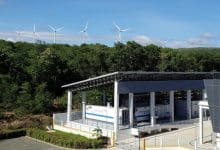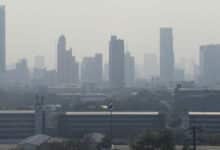Thailand’s BAAC plans to acquire 510,000 tonnes of carbon credits

The Bank for Agriculture and Agricultural Cooperatives (BAAC) seeks to acquire 510,000 tonnes of carbon credits over the next five years, according to Chatchai Sirilai, the bank’s president. This move aligns with Thailand’s ambition to achieve carbon neutrality by 2050 and its net-zero target, which aims to equalize greenhouse gas (GHG) emissions and absorption by 2065.
Chatchai revealed that the BAAC is working closely with the Bank of Trees community and another 6,800 communities to back the BAAC Carbon Credit project. He elaborated that this forestry sector carbon credit initiative involves the selling of carbon credits and issuing letters of recognition for the Low Emission Support Scheme (LESS) under the Thailand Greenhouse Gas Management Organization (TGO). The project’s ultimate goal is to meet business targets for lowering GHG emissions.
The project has seen significant participation from the Baan Tha Lee Tree Bank and Baan Daeng Tree Bank, both located in Khon Kaen province. These communities have sold 400 tonnes of carbon credits, which has created an income of 1.2 million baht (US$33,407), reported Bangkok Post.
Chatchai expressed the BAAC’s intention to extend the scope of the carbon credit project to cover more areas, with the ultimate aim of selling an annual total of 108 billion tonnes of carbon credits.
Nationwide, 6,814 communities have engaged with the project, bringing in an income of 116 million baht (US$3.2 million). The projects have registered 12.4 million trees and 124,071 members. Chatchai noted that the total value of the trees involved in these projects is approximately 43 billion baht (US$1.19 billion) and steps have already been taken to assess the value of these trees as collateral for loans this year.
The BAAC’s programme is designed to increase the capacity of forests to store GHGs by motivating communities to conserve forests and improve the livelihood of forest communities. Chatchai suggested that as a result, forests will flourish, and issues such as wildfires and PM2.5 pollution will be reduced sustainably.
He explained that one rai (a Thai unit of area) of land could grow 100 trees and generate 950 kilogrammes of carbon credits. After the deduction of expenses, which amount to 30%, each rai could generate about 2,000 baht (US$55.66) per farmer.
Chatchai also shared that presently, 84 communities have received LESS certification from the TGO and have sequestered 2.7 million tonnes of carbon dioxide (CO2), with the bank providing funding support of 3.8 million baht (US$105,761). In 2022, Thailand emitted 248 million tonnes of CO2, marking a 1.5% increase from the previous year.
Latest Thailand News
Follow The Thaiger on Google News:


























